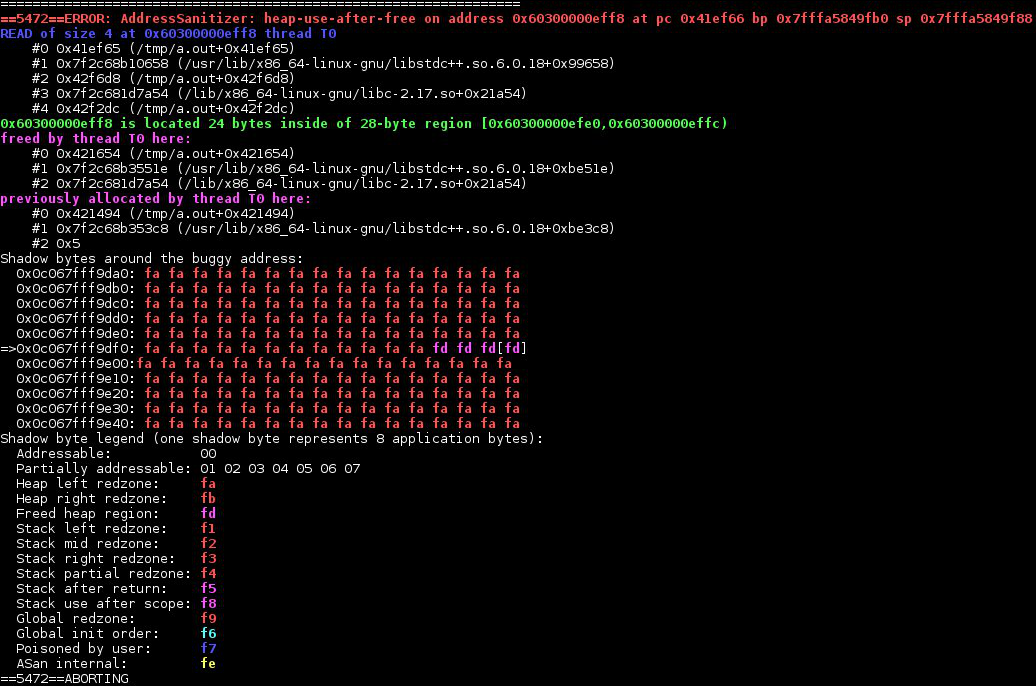2013.05.25 - address sanitizer
when it comes to debugging memory issues two tools have a warm place in my heart: duma and valgrind. both are nice, but there is always some “but”. duma is fast, but is only able to detect issues related to a heap. valgrind is a bit more robust (in fact – not limited to out-of-range r/w detection), but is terribly slow. recently i got aware of a new kid in town – address sanitizer plugin for clang, starting with version 3.1. it is incredibly easy to use: it is enough to pass -g -fsanitize=address -fno-omit-frame-pointer flags to compilation and linking, and it is done – code is instrumented using Asan!
the main idea behind this tool is to instrument code, in places that “might go wrong”, instead of relying on page allocations (heap-only) or full emulation (slow). most of the memory issues can be detected this way, while having minimal overhead on the performance (~2x, typically) and extra memory usage (both heap and stack).
having sample program:
#include <iostream> using namespace std; char const* mkStr(string const& in) { return in.c_str(); } int main(void) { auto str = mkStr("abc"); cout << str << endl; return 0; }
and running binary compiled with llvm/clang-trunk (i.e. pre-3.3 release), produces the following output:
similarly out-of-bound reads on stack can be detected. happy debugging! :)

